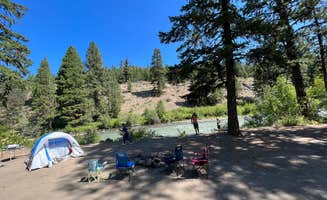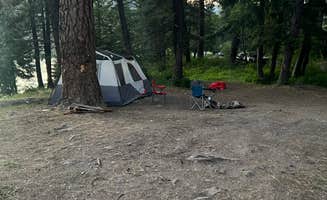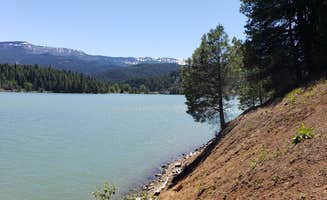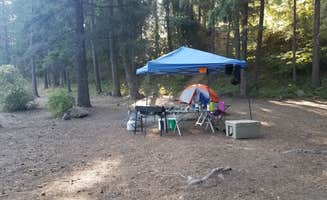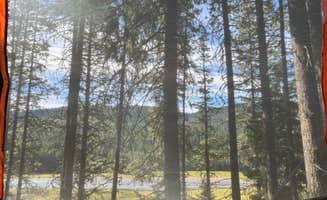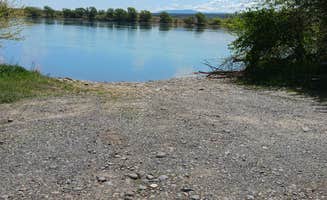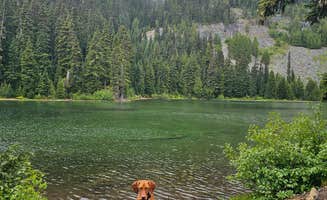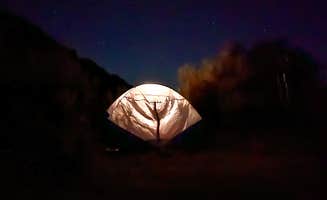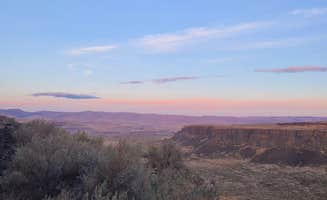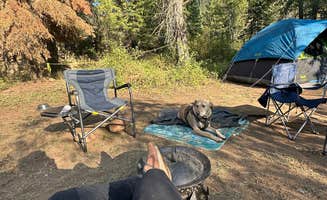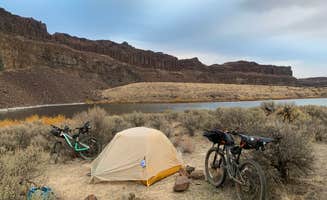Dispersed camping opportunities near Yakima, Washington span across basalt columns, volcanic terrain, and high-elevation forests where temperatures can vary dramatically by season. With much of the region managed by the Washington Department of Fish and Wildlife and U.S. Forest Service, free camping near Yakima typically requires navigating forest service roads with varying conditions. Several areas become inaccessible during winter months when snow blocks forest roads at higher elevations.
What to do
Explore rock formations: At Frenchman Coulee Dispersed Camping, visitors can explore unique basalt columns and enjoy climbing opportunities. "Gorgeous natural amphitheater. There are two pit toilets. Bring your own TP," notes Annie B., highlighting the minimal facilities available.
Fishing access: The Columbia River provides angling opportunities near Vernita Bridge, where campers can launch boats directly from shore. "The main draw here is that there's a boat ramp into the Columbia. If you've got a fishing/camping rig and like to tell fish stories, this is a great spot for you," explains Nicole C.
Wildlife viewing: Dawn and dusk offer prime wildlife spotting times at many locations. At Vernita Bridge, campers report seeing "many ducks and some geese floating down the river at high speeds. Also saw coyotes and friendly bees," according to Kevin C.
What campers like
Riverside access: The Tieton River spot offers direct river access with natural noise benefits. Julie notes, "Four or five spots with fire circles, next to hwy 12 but the river drowns out the highway noise. Gorgeous spot on the river."
Solitude: Weekday camping typically offers quieter experiences. "L.T. Murray Wildlife Area is located in Thorp, between Cle Elum and Ellensburg. It is often referred to as Elk Heights or Joe Watt Canyon," reports Robert C., who "stayed three nights and did not see anybody else camping or passing by on the road."
Natural water features: Many dispersed sites feature lakes, rivers or streams nearby. Evan S. appreciates Rimrock because "you can get s spot right next to the river! right in the forest so lots of shade, and great for dogs as well!"
What you should know
Road conditions: Most free camping areas require careful navigation of unpaved roads. At Fish Creek Dispersed, Jeff K. warns "Getting in can be tough as the road is dirt and used for wheeling in the off-season so be careful if your car is low."
Water sources: Potable water is rarely available at dispersed sites. Jeff K. notes "As far as drinking water, it's not available at the site, but there is a natural spring down the road about a mile and a half. It's clean and drinkable."
Weekend crowding: Popular sites fill quickly on weekends. According to Jeff K. at Fish Creek Dispersed, "it's always tough to get the spot you want unless you get there by Thursday. It's $8 per car and there are several spots to throw up a tent or hammocks."
Permit requirements: Washington Discover Pass ($30/year) required at most sites. Kevin C. confirms Vernita Bridge is "very isolated" but requires this pass for legal access.
Tips for camping with families
Campsite selection: Choose locations with natural boundaries for child safety. At Granite Lake Dispersed Camping Area, campers find "Plenty of room for a big group of campers," according to Ethan H., though he warns to "pick up trash before you go because it was pretty littered."
Weather preparedness: Mountain camping requires extra layers and weather contingencies. Owen C. advises visitors to Granite Lake to "Bring plenty of layers and it fills fast."
Timing considerations: Arrive midweek when possible for better site selection. Josh B. notes about Granite Lake: "There are only 5 sites on the lake. Good luck getting a camping site because it's a long road back out if the campground is full."
Tips from RVers
Vehicle requirements: High clearance vehicles strongly recommended for most dispersed areas. Courtney P. reports about L.T. Murray Wildlife Area: "We towed our 24 ft trailer up this road which turned out fine but definitely pushed the limits... Roads were very rocky at times but tolerable."
Site access evaluation: Scout ahead before committing to narrow roads. Jennifer J. shares her experience at L.T. Murray: "Tried to drive further in up a single steep and rocky road. It was very overgrown with tree branches scratching my van. Turned back to open field."
Campsite spacing: Most dispersed areas offer good separation between sites. Pamela R. notes about L.T. Murray: "Sites are very spread out and private. Wildflowers were amazing!"


